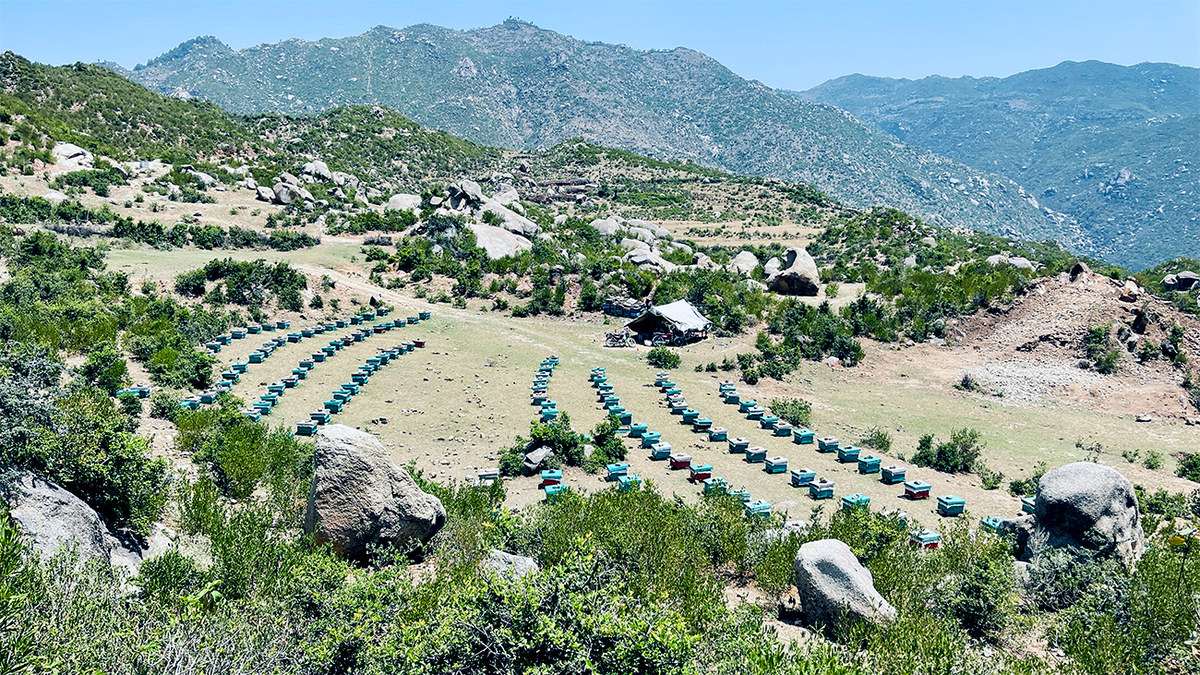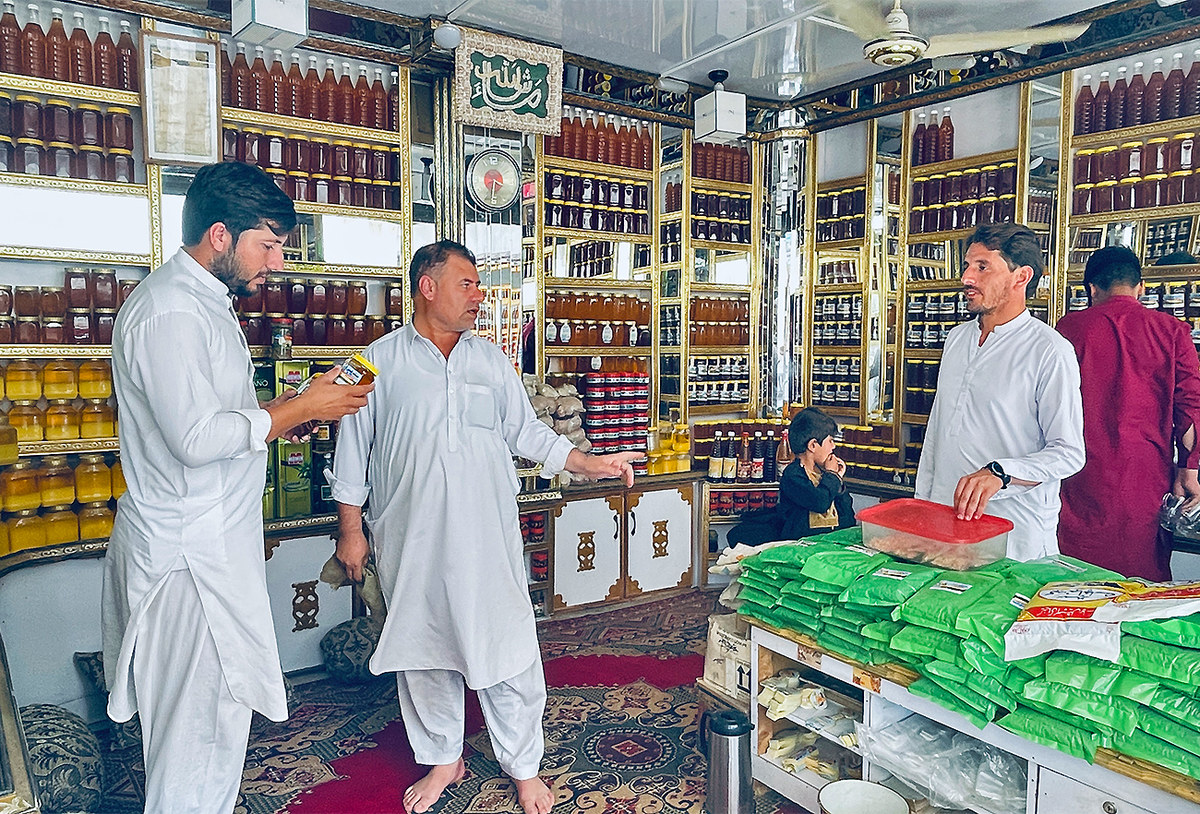PESHAWAR: When war broke out in Afghanistan four decades ago, Nazak Mir fled with his family to safety in neighboring Pakistan, arriving empty-handed but armed with a skill that in exile unexpectedly gave him a chance to follow in the footsteps of his ancestors and become a beekeeper.
When the UNHCR, the UN refugee agency, began offering beekeeping training in the refugee camp where his family had taken shelter in Pakistan’s northwestern Khyber Pakhtunkhwa province, Mir saw an opportunity to hone a family skill.
“Among other things, we left behind 54 beehive boxes that my elder uncle had kept for years. It was a family business before migration,” Mir told Arab News.
“I was one of the first people to sign up for the beekeeping training in 1983,” he said. “Today, I am the owner of 150 boxes.”

A honey bee farm in seen Buner district, Khyber Pakhtunkhwa, Pakistan, May 13, 2022. (AN Photo)
Apart from being a successful businessman himself, Mir also became a mentor to thousands of other refugees in Khyber Pakhtunkhwa.
The hilly province bordering Afghanistan is home to nearly 800,000 Afghans who fled armed conflict in their country, and are now the main force behind beekeeping in Pakistan, a major exporter of honey.
The South Asian nation currently produces an estimated 30,000 to 35,000 tons of honey annually, and exports over a fifth of it to Gulf countries, according to Sher Zaman Mohmand, the Secretary General of the All Pakistan Beekeepers, Exporters and Honey Traders Association.
He told Arab News the number of people involved in the honey sector, including those involved in beekeeping, was about 1.6 million, with 95 percent of them living in Khyber Pakhtunkhwa, where the climate and terrain is conducive to honey production
“Of them, more than 60 percent are Afghan refugees,” he said.
Some of them, like Mir, have also introduced their children to the profession.
“Now, my son has started his own beekeeping business,” Mir said, adding that he worried whether it would remain a lucrative profession in the future.

Various kinds of honey are on display at a shop in the Koga refugee camp, Buner district, Khyber Pakhtunkhwa, Pakistan, May 13, 2022. (AN Photo)
Pakistan is one the nations most affected by disasters driven by changing climate, and for the past few years has endured heatwaves that have upended its natural ecosystems.
With challenges related to climate change and deforestation depriving bees of food, their populations have been decimated in recent years.
“Lack of food causes the bees to fight among each other,” Mir’s son, Farhadullah, said. “Hot and cold weather also affect their health and honey production.”
Erratic swings in weather patterns have also changed harvest times.
“Honey producing seasons are defined by different flowering seasons. Timely and enough rains often result in four or five honey producing seasons while drought years reduce the honey seasons to just two,” Mohmand from the beekeepers association said.

Various kinds of honey are on display at a shop in the Koga refugee camp, Buner district, Khyber Pakhtunkhwa, Pakistan, May 13, 2022. (AN Photo)
However, he said, the problems could be mitigated if the government took strict measures to curb deforestation.
Pakistan has been trying to reforest the country in recent years and launched an ambitious five-year tree-planting program, the 10 Billion Tree Tsunami, to counter rising temperatures, flooding, droughts and other extreme weather that scientists link to climate change.
While more than 330 million trees have already been planted under the initiative, mostly in Khyber Pakhtunkhwa, Mohmand said the push should extend to other provinces, especially around the sites of the $65 billion Beijing-funded China-Pakistan Economic Corridor, the largest infrastructure investment project in the country.
“The government could promote forestry, particularly along the China-Pakistan Economic Corridor routes,” Mohmand said. “Plants like the Indian rosewood, acacia and jujube can be grown in many areas, including on barren lands across the country.”












